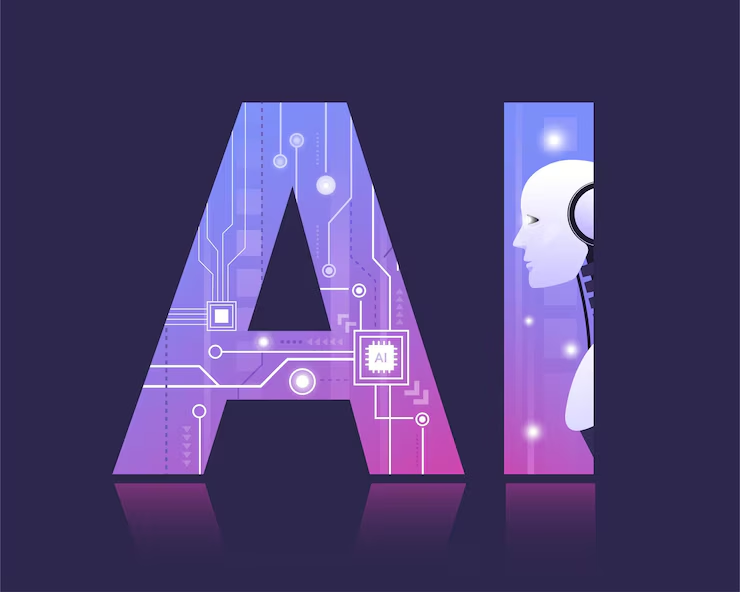The Influence of AI on Gamers and the Gaming World
Artificial Intelligence (AI) is transforming the gaming world at every level, revolutionizing the experiences of players and the tools available to developers. Gaming has evolved from scripted storylines and limited NPC interactions to a dynamic and interactive realm with endless possibilities. AI brings immersive gameplay, personalization, and procedural generation that have forever changed how games are created, played, and enjoyed. As gaming continues to grow, AI’s influence is expected to deepen, creating more realistic experiences and pushing the boundaries of what is possible in digital entertainment.
The Rise of AI in the Gaming Industry
The integration of AI into gaming has paved the way for a new era, one that combines real-time decision-making, adaptive storylines, and intricate character interactions. Where once NPCs followed limited and repetitive scripts, today’s AI-driven NPCs adjust to player decisions and even change in response to environments. This evolution creates gaming experiences that feel alive and unpredictable.
AI is also enhancing player engagement through machine learning algorithms that interpret player behaviors and preferences. This adaptation not only keeps players intrigued but also creates personalized gameplay that resonates on an individual level. With these advancements, the role of AI is no longer a futuristic dream; it’s the backbone of modern gaming experiences.
Realistic NPCs: Breaking Traditional Boundaries
NPCs have evolved from background figures into active characters capable of influencing a game’s storyline. AI-driven NPCs bring lifelike qualities into gameplay, making it feel as though players are interacting with real individuals rather than programmed characters. Games like The Last of Us Part II and Red Dead Redemption 2 have set new standards by incorporating AI to make NPCs reactive, changing their behavior according to a player’s actions.
Instead of predictable routines, NPCs now adapt their movements, initiate strategies, and exhibit emotions, which creates unique challenges and fosters immersion. This innovation turns each playthrough into a unique experience, enhancing the engagement and challenge for players. As AI continues to improve, it’s likely that NPCs will become even more complex and lifelike, opening doors for developers to create games where NPCs can remember interactions and adjust based on players’ past choices.
Personalized Gaming Experiences
One of AI’s significant contributions to gaming is its ability to tailor experiences to each player. AI algorithms analyze player behavior, understanding preferences, skills, and strategies. This data allows games to adjust their levels, challenges, and quests based on player choices. For instance, a game might offer increased difficulty levels or unique storylines depending on how players interact within the game world.
Titles such as Assassin’s Creed Odyssey and The Witcher 3 use AI to adjust difficulty and offer dialogue choices that impact the storyline. By allowing players to experience customized adventures, games become more inclusive, catering to both casual and competitive gamers alike. The personalization AI offers doesn’t just enhance the experience—it makes gaming more inviting and replayable.
AI and the Evolution of Graphics and Game Design
AI isn’t limited to NPC interactions; it also plays a critical role in elevating visual elements and game design. Tools such as Nvidia’s DLSS (Deep Learning Super Sampling) are transforming graphics by allowing for smoother visuals without requiring excessive computational power. AI achieves this by upscaling images to higher resolutions in real-time, which enhances visuals and boosts performance on various hardware setups.
In game design, procedural generation powered by AI creates expansive game worlds, intricate landscapes, and unique cityscapes with minimal manual input. This advancement allows developers to focus on creating interactive storylines and enhancing gameplay mechanics rather than designing every inch of the virtual world by hand. AI in design accelerates the development process, making complex and graphically rich worlds more achievable and immersive.
AI in Competitive Gaming and Esports
AI’s role extends into the world of esports, where it has become essential for both player training and fair competition. Through AI-driven analytics, competitive players and teams can analyze their performance, detect weaknesses, and refine their strategies. For example, AI tools can identify patterns in players’ movements, revealing strengths and areas for improvement. This has allowed professional gamers to train more effectively, improving their skills in record time.
Additionally, AI is instrumental in enforcing fair play by detecting cheating in real time. In competitive environments, machine learning algorithms monitor gameplay patterns, flagging suspicious behavior indicative of cheating. This development not only ensures fairness but also boosts esports’ reputation as a legitimate and serious competitive field. Moreover, AI can provide real-time statistics and insights to commentators, making esports events more engaging for spectators.
Dynamic Storytelling Powered by AI
Storytelling in gaming has shifted from linear narratives to dynamic and adaptive storylines, thanks to AI advancements in natural language processing (NLP). Games like Detroit: Become Human and Mass Effect use AI to adjust plotlines and character interactions based on player decisions, creating experiences that feel personalized and interactive.
AI-driven storytelling gives players the freedom to influence outcomes, creating an emotional connection and encouraging multiple playthroughs. As players make different choices, the storyline adapts, leading to varied endings and unique character relationships. This level of immersion offers replayability, as players are curious to explore different outcomes. The technology behind dynamic storytelling also allows smaller game studios to create intricate narratives without requiring extensive manual coding.
Transforming Virtual Reality (VR) with AI
Virtual Reality (VR) has unlocked immersive gaming experiences, but with AI, VR is reaching new heights. AI-driven VR games can generate responsive environments that adapt to player movements and decisions, heightening the sense of immersion. AI enhances VR by creating interactive worlds where environmental factors like weather, lighting, and NPC behavior adjust in real time, deepening players’ engagement.
Beyond entertainment, AI-powered VR has practical applications in training and simulations, allowing players to practice skills in a realistic yet controlled environment. In this way, VR coupled with AI extends beyond traditional gaming, making it applicable to professional training and educational uses. As VR and AI continue to develop, players can expect even more immersive experiences that blend entertainment with real-world practicality.
How AI is Redefining Game Development
AI-driven tools like procedural generation and automated testing are significantly streamlining game development. Procedural generation creates vast landscapes and unique settings by following basic parameters, resulting in diverse game environments without the need for manual design. Automated testing, another AI innovation, reduces development time by quickly identifying bugs and issues, allowing developers to focus on perfecting gameplay elements rather than debugging.
This automation in game design not only enhances the gaming experience but also benefits developers by reducing workload and improving time-to-market. Smaller studios, too, can leverage AI tools to create expansive and graphically impressive games, increasing competitiveness and creativity in the gaming industry. The future of game development looks promising as AI tools enable developers to push creative boundaries while meeting high industry standards.
The Future of AI in Gaming
The influence of AI on the gaming world shows no signs of slowing down. Future developments are likely to bring games with even greater personalization, smarter NPCs, and real-time procedural generation of entire worlds. AI may soon enable gaming environments that learn and evolve based on player behavior, offering worlds where players’ actions create lasting impacts.
Machine learning models will continue advancing, potentially enabling games that evolve based on community interactions and preferences. With AI-generated narratives and complex world-building, developers can create deeply interactive experiences where each decision truly matters. As gaming moves into the future, AI promises endless opportunities for developers and players alike, opening doors to innovations that are only beginning to be explored.
Backlink for Further Reading: Learn more about the impact of AI on game development and how it’s shaping the future of digital entertainment.






